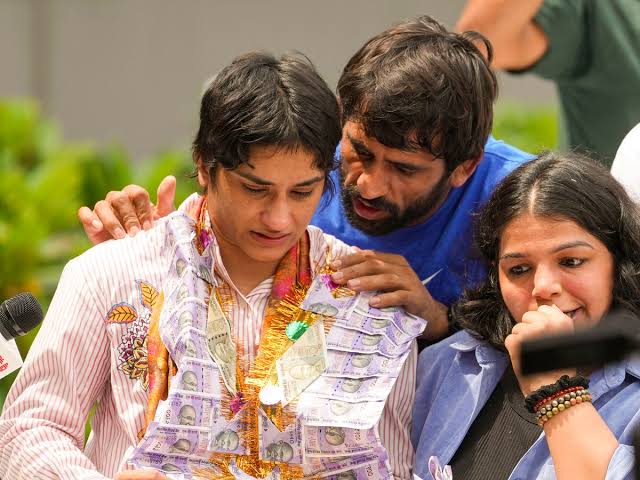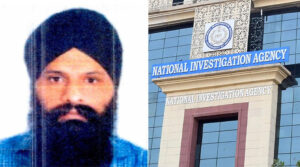Vinesh Phogat, a name synonymous with Indian wrestling, has recently found herself at the center of not just sporting but political controversy. Her disqualification from the Paris 2024 Olympics due to a weight misstep might have been a personal sporting failure, but her subsequent actions and the narrative she’s chosen to embrace transform this incident into a broader critique of how sports and politics are dangerously intertwined in India.
The Support System Ignored
Before diving into the political quagmire Phogat waded into, it’s pivotal to acknowledge the extensive support she received from the Government of India. The Indian contingent at Paris was equipped with all necessary facilities to ensure athletes like Phogat could perform at their peak. From top-tier coaches, medical support led by experts like Dr. Dinshaw Pardiwala, to the logistical backing that allowed her to focus solely on her performance, the government’s investment in her journey was substantial. The narrative that Phogat was left to fend for herself or was a victim of neglect does not hold water when one considers the efforts made to accommodate athletes’ needs, including last-minute weight management strategies. Here lies the first point of criticism: the failure to acknowledge or perhaps even recognize the breadth of support provided.
From Athlete to Political Figure
Phogat’s transition from an athlete facing a setback to a political commentator was swift and, arguably, mishandled. Post her disqualification, instead of introspection or focusing on what could be improved in her training regime or mental preparation for managing weight, Phogat’s discourse veered into the realm of politics. She criticized the system, yet her critique lacked the specifics that could lead to constructive change. Instead, it played into a broader, often unproductive narrative of victimhood at the hands of a nebulous ‘system’. This shift not only dilutes her sporting legacy but also muddles the waters of sports governance with political mudslinging. Here’s where Phogat’s approach can be critiqued heavily: leveraging a personal sporting failure to score political points is neither fair to the sport nor to the genuine efforts made by sports bodies and the government.
The Blame Game
The disqualification was a rulebook consequence of not meeting the weight criteria – a fundamental aspect of wrestling, known to every athlete from the outset. Yet, Phogat’s reaction, echoed by some political entities, suggested a conspiracy or at least gross negligence by the authorities. This portrayal does a disservice to the sport’s integrity. Wrestling, like many sports, operates on clear-cut rules. Blaming the rules or those enforcing them for personal oversight is a misdirection of responsibility.
The Role of Athletes in Society
Athletes like Phogat are not just competitors but role models. Their actions post-failure are as crucial as their performances. By turning her disqualification into a political statement, Phogat might inspire a sense of victimhood among young athletes rather than resilience or accountability. Here lies another criticism: the potential negative influence on upcoming athletes who might now see politics as a viable refuge from personal accountability.
Conclusion: A Need for Apolitical Sportsmanship
Vinesh Phogat’s case underscores a worrying trend where sports and politics in India are becoming increasingly entangled. While athletes have every right to engage in civic discourse, using personal sporting setbacks as a launchpad for political critique undermines both their credibility and the apolitical nature of sports. The government, sports bodies, and indeed the public, have supported Phogat, not as a political entity but as an athlete. Her failure to separate her wrestling from her politics, therefore, feels like a betrayal of the apolitical support she received. Perhaps, it’s time for athletes to reflect on their roles not just as sportspeople but as influencers in society. They must strive to keep sports above the murky waters of politics, focusing on unity, discipline, and personal responsibility rather than division and blame. In the end, sports should be about transcending political, cultural, and social boundaries, not reinforcing them. Vinesh Phogat’s Paris ordeal could have been a story of human error, resilience, and redemption. Instead, it risks becoming a cautionary tale of how not to blend sports with politics.



